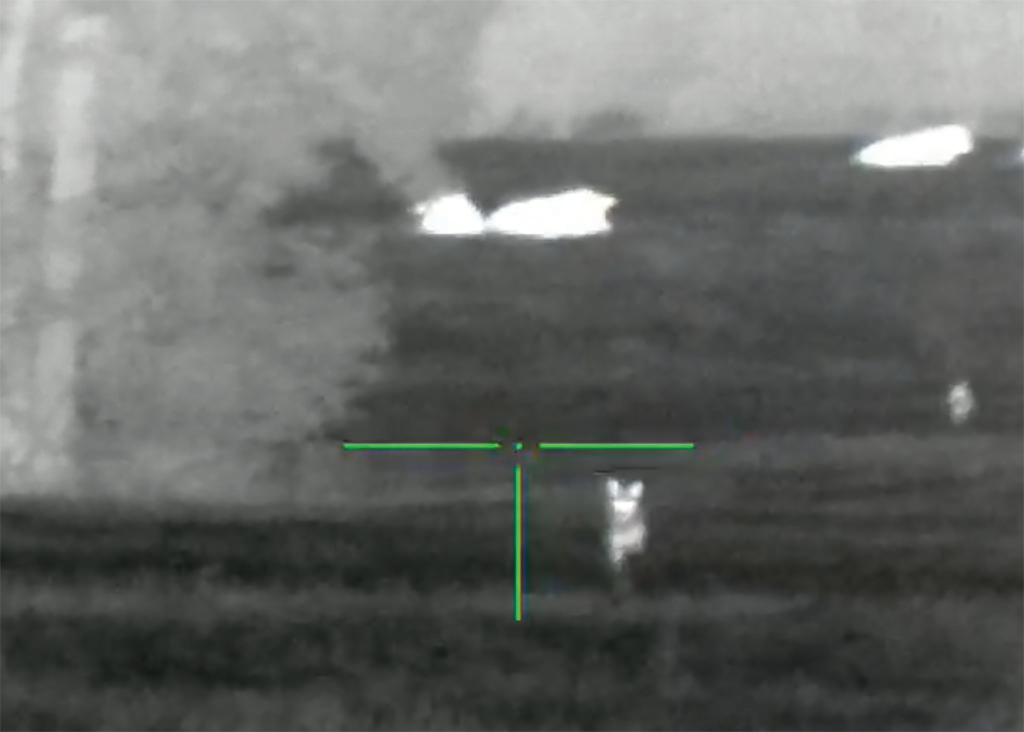For decades, Alabama sportsmen could shoot feral hogs and coyotes all year long during daylight hours on private lands without limit, but these animals frequently roam at night, particularly in summer heat.
Europeans brought pigs to North America centuries ago. Simply domestic pigs turned wild, feral swine eat almost anything and cause millions of dollars in crop damage. They also destroy native wildlife habitat. When searching for food, pigs tear up the ground, making an area look liked someone rototilled it.
“Neither swine nor coyotes are native to Alabama,” says Marianne Hudson, the conservation outreach specialist for the Alabama Wildlife and Freshwater Fisheries Division. “Hogs seriously impact agricultural crops and our native wildlife. They not only destroy habitats that rightfully belong to our native wildlife, but they eat anything.”
Few people think of pigs as predators, but hogs consume large quantities of bird eggs, especially ground nesters like quail and turkey. The highly prolific swine also eat any young birds or animals they can catch. If they can catch it or find it, pigs will eat it.
Native to western North America, coyotes expanded their range eastward to fill the vacuum created when wolves and cougars largely disappeared east of the Mississippi River a century ago. In the early 1900s, some people released coyotes in Alabama as game animals. Coyotes naturally arrived in Alabama by the 1960s and now populate every county in the state.

Highly skilled predators, coyotes typically eat mice, rats, rabbits and other small animals, but won’t hesitate to devour anything they can find or catch. Coyotes normally hunt from dusk to dawn so people rarely see them during regular daylight shooting hours.
“Coyotes catch all sorts of rodents, but they also catch game animals like rabbits and juvenile animals. They also prey on deer. Coyotes eat whitetail fawns, but sometimes even catch and eat adult deer.”
To protect their property, livestock and crops, landowners can apply for depredation permits from their district wildlife office, which allows them to kill destructive animals at night. However, a new law permits anyone to hunt hogs or coyotes at night on private lands. The new law does not change the depredation permits.
“A new law allows us to issue licenses to anyone to hunt feral swine and coyotes at night,” Hudson says. “Hunters possessing this license can hunt those two species during the specified season. The new license and depredation permit are two different things. Depredation permits will continue to be available to landowners. Those rules aren’t changing.”
Many public hunting areas allow people to kill unlimited hogs and coyotes while hunting other legal species, but only during normal daylight shooting hours. The new night hunting license only applies to private lands and costs $15 for residents and $51 for non-residents. Licenses go on sale July 1. For this first year, the night season for hogs and coyotes runs from July 1 until Nov. 1, but dates could change in the future.
“This has just been signed into law, but we could reconsider the regulations for this type of hunting in the future,” Hudson says. “Season dates will be set annually. No one is exempt from this license. It applies to youth, private landowners hunting their own property, those age 65 and over, everyone.”
In addition, the new law allows sportsmen to use equipment previously prohibited for hunting, such as night vision devices, thermal optics and lights or lasers attached to firearms. Hunters can only use this type of gear if they possess the night hunting license and use them while hunting coyotes and hogs on private land during the designated open season.
“This is definitely an exciting new opportunity for Alabama hunters,” Hudson says. “Another great thing, these licenses will be available online at outdooralabama.com, so someone could purchase a license at the last minute. For instance, a person decides to hunt coyotes or feral hogs one night on his or her property. That person could purchase the license on the way out the door and have it available on the smart phone app to show any conservation enforcement officer.”
Hudson cautions hunters to keep safety in mind while hunting at night. Before pulling the trigger, positively identify the target and what’s behind it. In addition, she urges sportsmen to report any illegal activity by calling 1-800-272-GAME.
John N. Felsher is a professional freelance writer who lives in Semmes, Ala. He also hosts an outdoors tips show for WAVH FM Talk 106.5 radio station in Mobile, Ala. Contact him at [email protected] or through Facebook.




